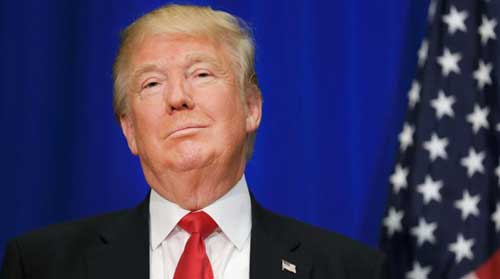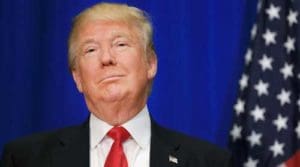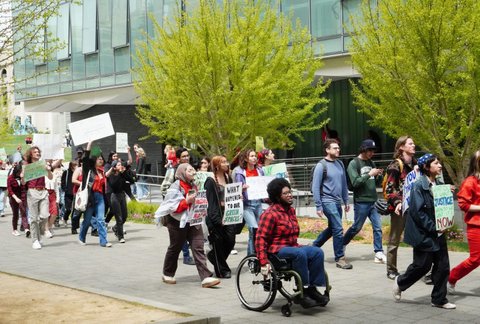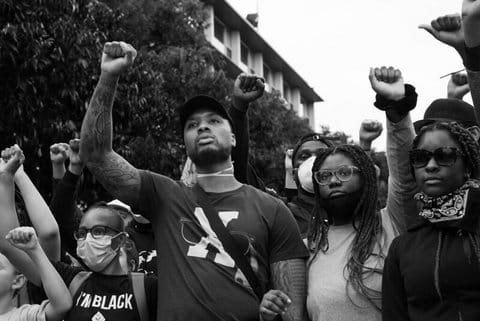
20 Jul Election 2016: Racial Anxiety Fuels the Trump Campaign
Donald Trump’s incendiary rhetoric has fueled a rightwing social movement in the Republican Party among a substantial segment of the white working class fed up with the do-nothing political establishment and the financial squeeze that has limited their lives and livelihoods. Trump’s putrid policy prescriptions, racist remarks and boisterous bigotry fan the flames of their racial anxiety and misdirect the blame for their economic stress. In the process, he is consolidating an extremist movement in the U.S. that goes beyond the influence of Tea Party radicals.
The complexion and culture of the United States is rapidly changing due to immigration from Latin America, the Caribbean, Asia, Africa and the Middle East, along with higher birth rates among people of color. In response, large sections of the white population harbor latent and blatant racial resentment towards Blacks, Latinos, Asians and Arabs. Add to this a heavy dose of Islamophobia, a lethal measure of xenophobia, and a hefty volume of male chauvinism, and you get an explosion of rage in the white body politic.
Appealing to the conscious and unconscious bias of white constituents has been the hallmark of Republican electoral strategies for decades. Democrats have all too often sunk to the same low level in trying to win over white voters. Through “dog whistle politics”, whites have been encouraged to vent their anger at “The Other”—the “welfare queens”, “the illegals”, “the takers” and other racially coded enemies.
There is good reason for the anger of white working class people — the problem is not that they’re angry. It’s that the target of their wrath is misplaced. They blame people of color for their failing fortunes, a blame that should be put at the doorstep of rightwing ideologues, corporate elites and their government handmaidens.
Bernie Sanders’s refrain, “The system is rigged” bears repeating. The economic pain of the white middle class is real. The vast majority of the wealth of the country is going into the deep pockets of an elite club of millionaires and billionaires. So why then do so many working class whites flock to the Trump fold? They have been sold a bill of goods that says that the source of the country’s problems is rooted in the changing demographics that threatens the very nature and identity of the country. They don’t share our values. They’re rapists. They bring drugs into the country. They hate the police. They’re terrorists. They are not one of us.
This hateful, divisive rhetoric masks a toxic inequality: while white families have experienced economic decline, the wealth gap between whites and people of color, especially blacks, has grown ever wider. The elites and the rightwing ideologues have used people of color as a buffer between themselves and the white working class. As they amass their wealth and leave the 99% behind, the elites and the political establishment that support them strategically use racism to deflect criticism from themselves.
But the social movements of the twenty-first century are challenging the status quo in new and exciting ways. The Occupy Movement, though short lived, changed the public discourse, denouncing the concentration of wealth and power in the 1%. The Black Lives Matter movement has shattered the “one bad apple” theory of police misconduct through sustained mass demonstrations and video evidence of police murder and brutality on social media. BLM has created a new paradigm of organizing in the black community by embracing all black people, including those who have been historically excluded, including LGBT people and those currently and formerly incarcerated. The environmental justice movement has defended black and brown communities in the U.S. and internationally that are bearing the brunt of environmental degradation. Undocumented dreamers reinvigorated the immigrant rights movement with their slogan, “Undocumented and Unafraid” and their courageous acts of civil disobedience.
These different strands of today’s social movements are forcing a new dialogue about who belongs in this society. They are creating bonds of solidarity among themselves and boldly confronting racism and white supremacy. They have already had significant influence over politicians and policymakers. Organizations led by white progressives, like the Courage Campaign are also taking up the issue of race to expose its cynical use as a wedge issue in the presidential elections. Continuing to build upon the solidarity, developing a shared analysis and a common strategic outlook can be the glue that binds these different parts into a powerful whole capable of forcing sustained, transformational change.
Trump, Trumpism and corporate domination of our economy and our political system are major obstacles to true democracy and economic wellbeing. Defeating Trump, discrediting Trumpism and reining in corporate greed is on the immediate agenda. Embracing the racial and ethnic diversity of our people and ensuring that all of us belong is the wave of the future.
Gerald Lenoir is the former executive director of the Black Alliance for Just Immigration. He is currently a consultant for the Blueprint for Belonging project of the Haas Institute for a Fair and Inclusive Society at UC Berkeley.







No Comments